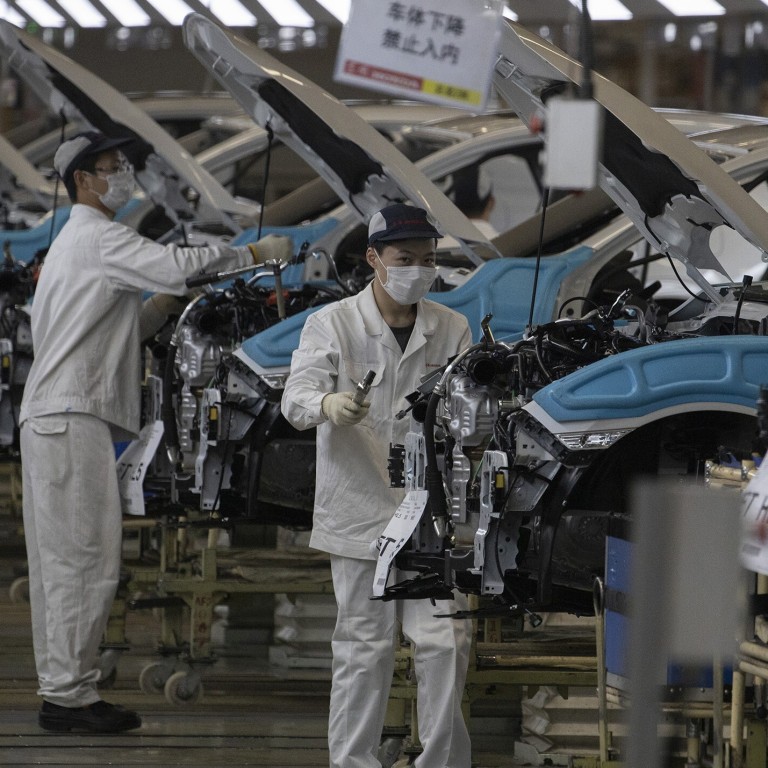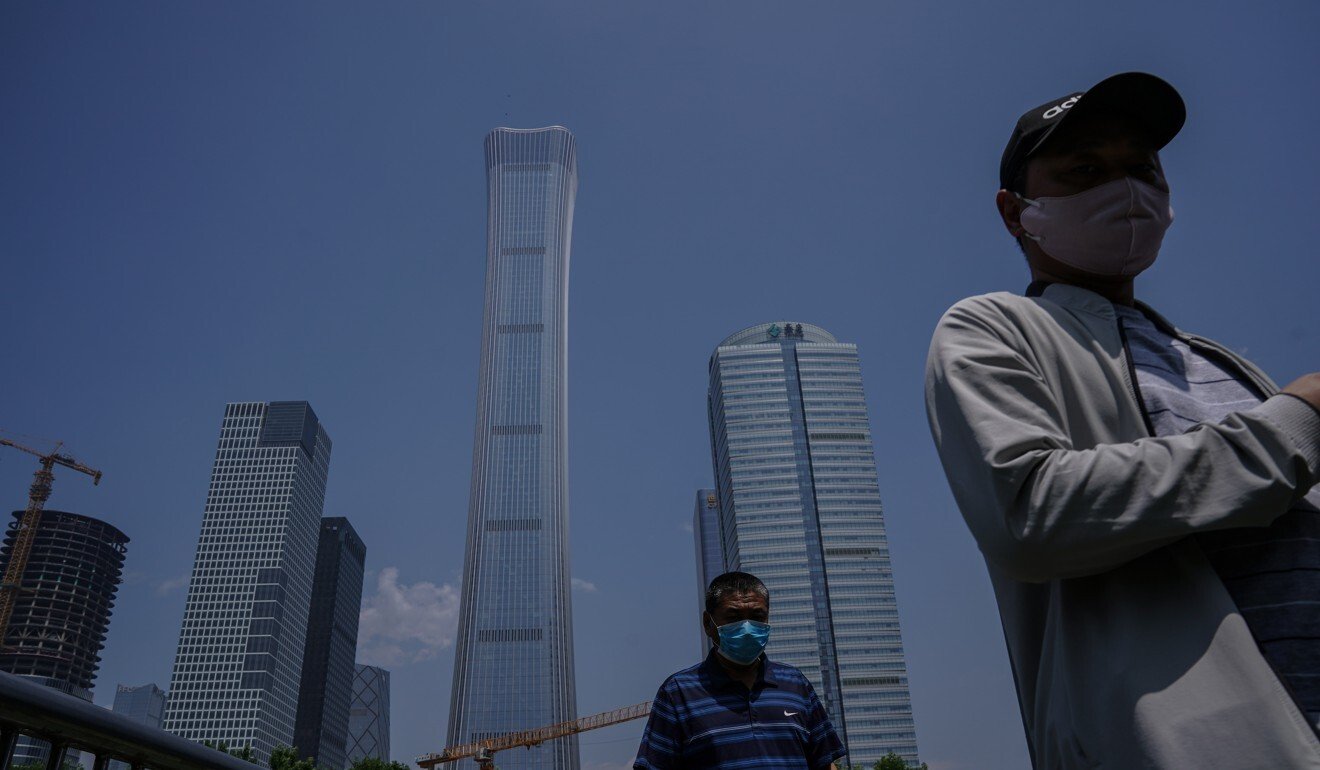
China eases restrictions on foreign investors, but is it too little too late?
- Beijing opens door to manufacturing and financial services sectors by another notch with shortened ‘negative list’, but business groups say markets are already dominated by local players
- ‘Idea of competing in the most common of banking services is a pipe dream,’ EU Chamber of Commerce says
With effect from July 23, all caps on equity stakes in securities, fund management, futures and life insurance companies will be removed, allowing for total ownership of such businesses by foreign entities, the Ministry of Commerce and the National Development and Reform Commission said in a joint statement issued on Wednesday.
Restrictions on foreign investment in commercial vehicle manufacturing will also be lifted, it said.
The negative list now runs to just 33 items – down from 40 – and is even shorter in China’s designated free-trade zones, according to the statement.
However, China’s news broadcasting, public polling, online news services and education sectors will remain largely off-limits to foreign investment, while telecom operators, nuclear plants and airlines must be majority-owned by Chinese firms.

While generally welcoming the lifting of restrictions, European and US business groups said the moves had been a long time coming and should have gone further.
“Removing the equity cap restrictions in financial services will have a meaningful impact for European financial institutions, but the opening of these sectors remains incomplete,” the EU Chamber of Commerce in China said in a statement.
Most of the areas of interest to European banks, such as cross-border services, which requires lenders to be licensed by Beijing, remained out of reach, it said.
EU leaders talk tough on China’s long list of unmet promises
On the issue of timing, the chamber said the easing of the rules had come “quite late in China’s economic development”.
The insurance, asset management and futures sectors in the world’s second-largest economy were already “quite developed”, it said, and China’s banking giants held the lion’s share.
“Coupled with extensive state support, the idea of competing in the most common of banking services is a pipe dream, meaning European banks are left chiefly with niche opportunities,” it said.
Jake Parker, a senior vice-president at the US-China Business Council, a non-profit organisation that promotes trade between the two countries, described the shortening of the list as “another positive signal that China is implementing its commitments made in the phase one trade deal”.
However, he said the council was disappointed to see only limited openings in the telecoms and entertainment industries where US firms had an advantage and hoped Beijing would take steps to open them further.
While China’s postal services, social science research and rare earth mining sectors remain completely closed to overseas investors, there was further easing in the construction sector, with foreign players now allowed to take a majority stake in joint ventures involved in the construction and operation of water supply and drainage networks in cities with a population of more than 500,000.
“Better late than never, but these openings in largely saturated markets mean European companies will, yet again, have an opportunity only to take a tiny slice of the market,” said Joerg Wuttke, president of the EU Chamber of Commerce in China.
“Nevertheless, all things China being massive, a small fraction of the pie derived through niche opportunities may amount to good business for European players,” he said.

